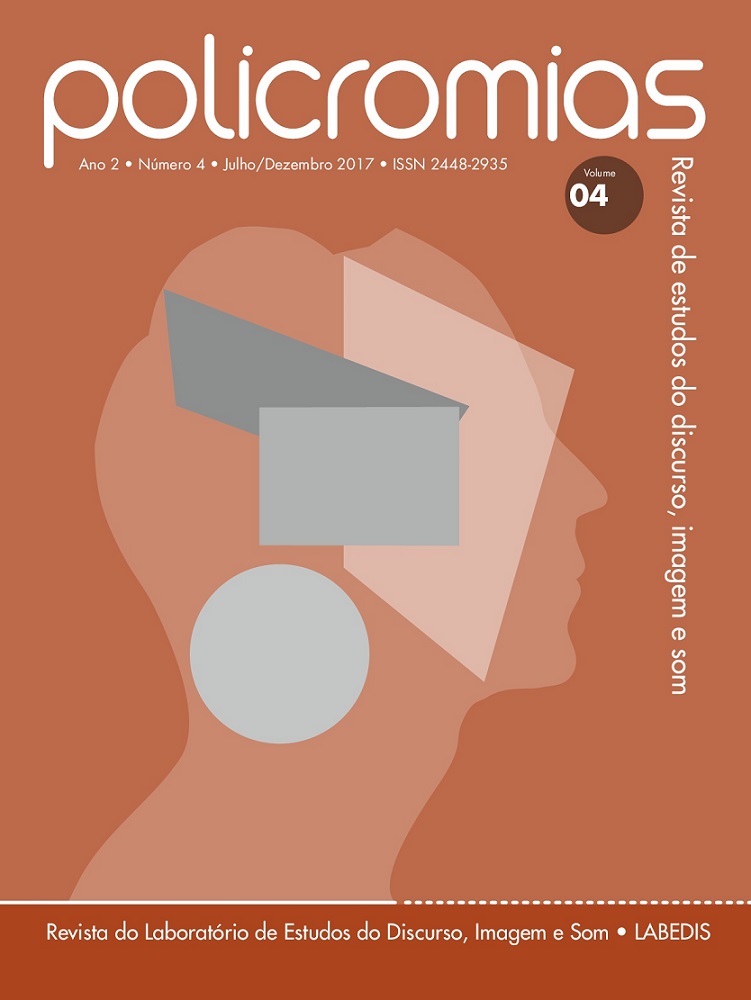DISCURSIVE ANALYSIS OF MEDIA REPRESENTATION OF INFAMOUS BODIES. CASE STUDY OF METRO NEWSPAPER
DOI:
https://doi.org/10.61358/policromias.v2i2.12406Palavras-chave:
representação, corpos infames, imunização, política do corpo, jornalismoResumo
one of the effects of violence in Mexico is the representation of infamous bodies in the press. This article explores infamous bodies[1] production based on different events (accidents, violence or extravagant behaviors), which become social facts after being recorded in language. The aim of the document is to look at the representation of the infamous body through the journalistic discourse, conceived as an indication of society's perspective towards "the other". The hypothesis of the paper is that the representation of infamous bodies in the press corresponds to an unsupportive sense of solidarity as part of an immunization process (ESPOSITO 2011). The article uses the concept of immunization applied through a semiotic and rhetorical analysis that takes into account the dimension of language and image, proposing a hermeneutics that puts into question the ethics of journalism in its relationship with power and violence. For this end, the front pages of the Metronewspaper, whose journalistic discourse is an eloquent example of the construction of infamous bodies and the immunization process, were analyzed.
[1] The term ‘infamous bodies' introduced by Michael Foucault in Power, truth, strategy, 2006, will be used along the text.
Downloads
Referências
ARRIAGA, J. L. “Colombianización o mexicanización periodística: La nota roja en los noventa”. Razón y Palabra, México, n. 26, april-may, Retrieved 2013: http://www.razonypalabra.org.mx/anteriores/n26/jarriaga.html
BAKHTINE, M. Le Marxisme et la philosophie du langage. Essai d'application de la méthode sociologique en linguistique. Paris: Minuit, 1997.
CASAS, M. L. “Cobertura informativa de la violencia en México”. Global Media Journal México, México, v. 8, n. 15, p. 1-16. Retrieved from https://journals.tdl.org/gmjei/index.php/GMJ_EI/article/view/55/54
CHABAT, J. “La respuesta del gobierno de Felipe Calderón ante el desafío del narcotráfico: entre lo malo y lo peor”. In: ALVARADO, A.; SERRANO, M. (org.). Los grandes problemas de México XV: Seguridad nacional y seguridad interior. México: El Colegio de México, 2010
CIURANA, E.; REGALADO, C. Pensamiento complejo y educación. Aclaraciones y confrontaciones. México: Frontera Abierta/CLACSO/IUIT/ UAGro, 2016.
ESPOSITO, R. "Le concept d'impolitique" (conference). In Université de tous les savoirs. Paris: Centre de Ressources et de Information sur les Multimédias pour l'Enseignement Supérieur, 2000. [Online]. Available in: http://www.canal-u.tv/producteurs/universite_de_tous_les_savoirs/dossier_programmes/les_conferences_de_l_annee_2000/l_esprit_de_notre_temps/le_concept_d_im_politique). Retrieved: 14 de enero de 2012.
ESPOSITO, R. Communitas. The origin and destiny of community. California: Stanford University Press, 2010.
ESPOSITO, R. Inmunitas. The protection and negation of life. Cambridge: Polity Press, 2011.
ESPOSITO, R. The terms of the Political: Community, Immunity, Biopolitics. New York: Fordham University Press, 2012.
FOUCAULT, M. Vigilar y Castigar. Madrid: Siglo XXI, 1986.
FOUCAULT, M. Power/Knowledge: Selected interviews and other writings. 1972-1977. London: Harvester Press, 1980.
FOUCAULT, M. Power, truth, strategy. Sidney: Feral Publications, 2006.
GARCÍA, A. "Desbarranca camioneta; muere chavo". In Metro newspaper. n. 1589, January 13th, Mexico, 2012.
GOLDMANN, L. Le dieu caché. Paris: Gallimard, 1995.
GONZÁLEZ, C. "Pensar el discurso médico desde la comunicación". In MARTELL, L.; VALERO, J. (org.). Agenda académica para una comunicación abierta). Mexico: Miguel Ángel Porrúa-Universidad Autónoma del Estado de México, 2010, p. 217-244.
GONZÁLEZ, C.; TAMBORINI, A. "El lenguaje popular como isomorfismo social. Caso de El Notifiero con Brozo". In Versión. Estudios de comunicación, política y cultura. n. 27, 2011. Mexico: Universidad Autónoma Metropolitana-Xochimilco. [Online]. Available in: http://bidi.xoc.uam.mx/tabla_contenido_fasciculo.php?id_fasciculo=563. Retrieved on December, 1st, 2011.
PICQ, J.; CUSSET, Y. Philosophie politique pour notre temps: un parcours européen. Paris: Odile Jacob, 2005.

